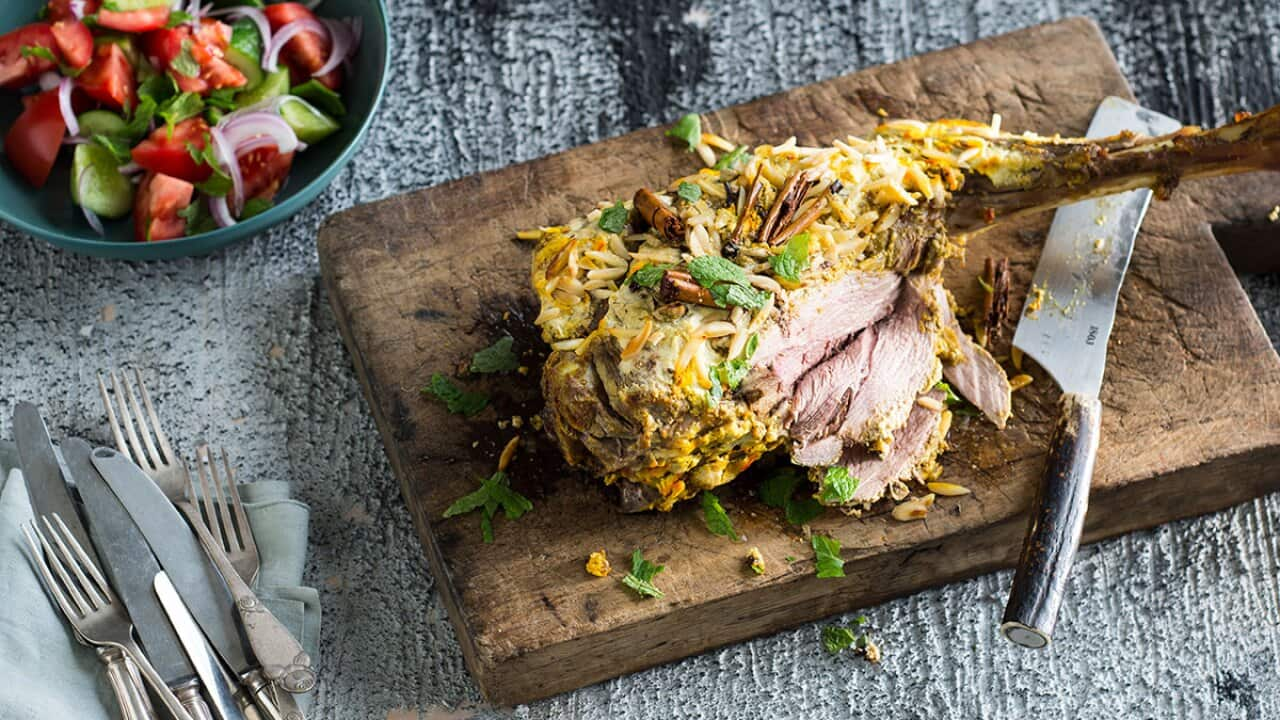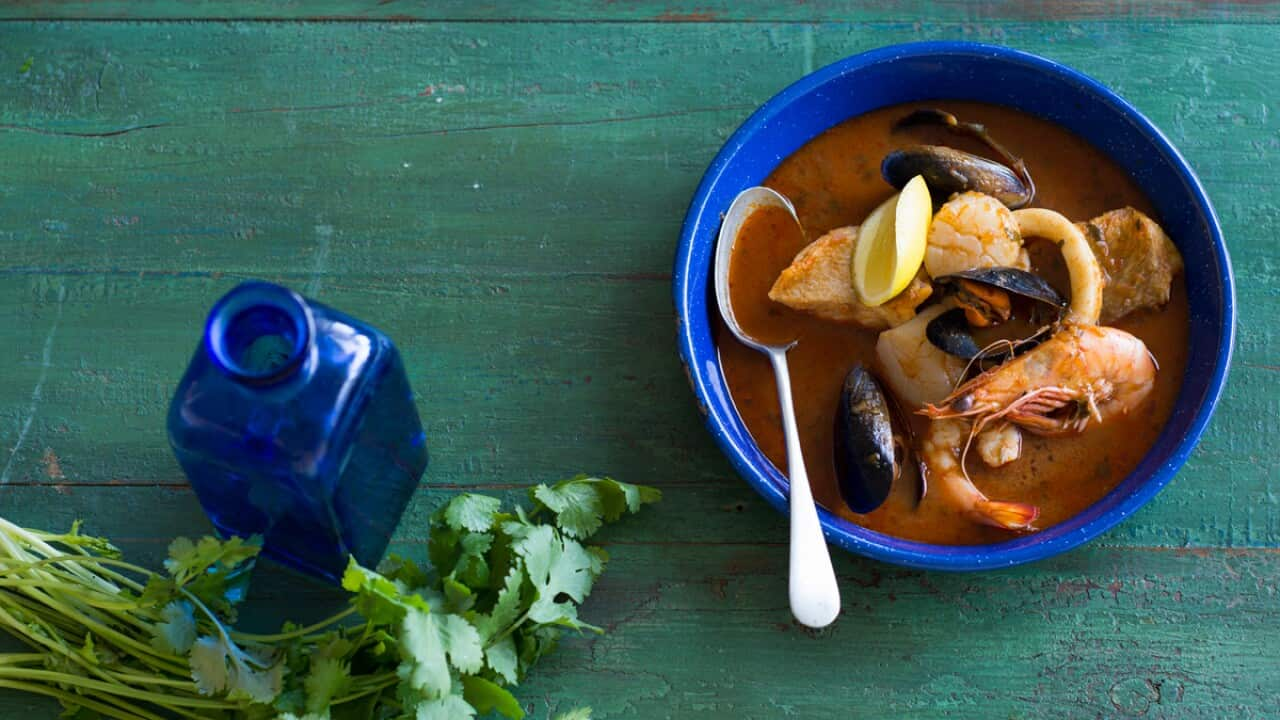I’ve been a vegetarian since I was 19. But I remember that even before I ever considered becoming a vegetarian, I just didn’t like the smell of meat.
I grew up in a very traditional Cantonese household. I was never told ‘eat your vegetables’ as a child because you just ate your vegetables naturally. Vegetables were a synthesised part of your meal.
We also ate a lot of meat. I’ve had it all, even pig’s intestines, which was a normal meal for me growing up. At the time, I really liked it but, as I got older, there was just something in me that did not want to eat meat anymore.
I feel food should be as inclusive as possible, and there should be as few labels as possible.
Yet to this day, being a vegetarian is still a bone of contention [in my family].
My mum is forever trying to sneak meat into my food. ‘Oh, it’s just got a little bit of pork in it but that’s okay,’ she will say. My uncle owns a Chinese restaurant [in Sydney’s] Crow’s Nest. Even now if I turn up for lunch he’d say ‘are you still not eating meat?’
Vegetarianism is still something that feels new for them. It’s just not seen as a diet that’s ‘natural’ to our culture.
There’s still a social stigma about being vegetarian, although there’s not as much stigma today as there used to be. I feel food should be as inclusive as possible, and there should be as few labels as possible.
Eating more vegetables really shouldn’t be a divisive issue. So I never really talk about my food being ‘vegetarian’. Instead, I create recipes and food that everyone will love – not just vegetarians.
I just want people to be excited about vegetables, feel completely satisfied after eating a vegetarian dish and walk away saying ‘that was absolutely delicious’ – not ‘that was pretty good considering it didn’t have chicken’.
I never really talk about my food being ‘vegetarian’. Instead, I create recipes and food that everyone will love – not just vegetarians.
Observing something like helps people to reboot their diets and really think about what they are cooking and putting on their plate. It helps you to search for . I think it’s a great way for people to feel connected to the food they are eating.
Eating more vegetables and less meat is also an important environmental issue. Meat [consumption] is a massive drain on natural resources. But I don’t try and lecture people about what they eat or be too political about it. You don’t have to be vegetarian but if you can eat less meat or eat smaller portions of meat, it’s going to make a difference [to the environment]. The future of food is fairly precarious right now so it’s good to think about the choices your making.
How to eat more vegetables
I take a very common-sense approach to being a vegetarian. I have three children and can’t afford to eat organic all the time. But I try when I can. I can’t afford to eat food bought from the farmer’s markets all the time, but I try when I can.
I don’t have a lot of expectations but I think filling your diet with vegetables is just a smarter way to eat.
All my meals are hearty and almost all the food I serve is multicultural.
I just want people to be excited about vegetables, feel completely satisfied after eating a vegetarian dish and walk away saying ‘that was absolutely delicious’ – not ‘that was pretty good considering it didn’t have chicken’.
I don’t have a lot of leaves in my food. I put a few in to bulk up a dish but I always start with a seasonal vegetable and then add a grain or legume to bulk it up. Use the vegetables you can find easily. There’s no shame in filling your pantry with a tinned legume like chickpeas, cannellini beans or canned lentils.
You also need to put some thought into the way you cook vegetables, what spices you will add and how you will build a flavour profile.
Broccoli is a good vegetable to eat. Don’t just boil it or steam it – cook it in a different way than you’re used to build flavour. It’s getting warm in Australia so perhaps put it on the BBQ or panfry it until it starts to char a bit. It’s so delicious.
Cauliflower is another accessible vegetable. I can’t imagine anyone not liking a roasted cauliflower – it’s so sweet. You can add tahini to it, as it’s a natural pairing. This dish will have so much earthiness to it, be creamy and nutty.
Lately, I’ve also been loving sweet potato. When you roast it and get this vegetable to its right tenderness, all that sweetness comes out of it. That’s when you add something salty like a black olive or feta cheese to create a juxtaposition of flavours.
These vegetables are all very approachable.
If you have one vegetable and one can of beans, then you have a meat-free meal. It’s as simple as that.
Meat Free Week runs until Sunday 30 September 2018. For more details and to sign up, visit .









